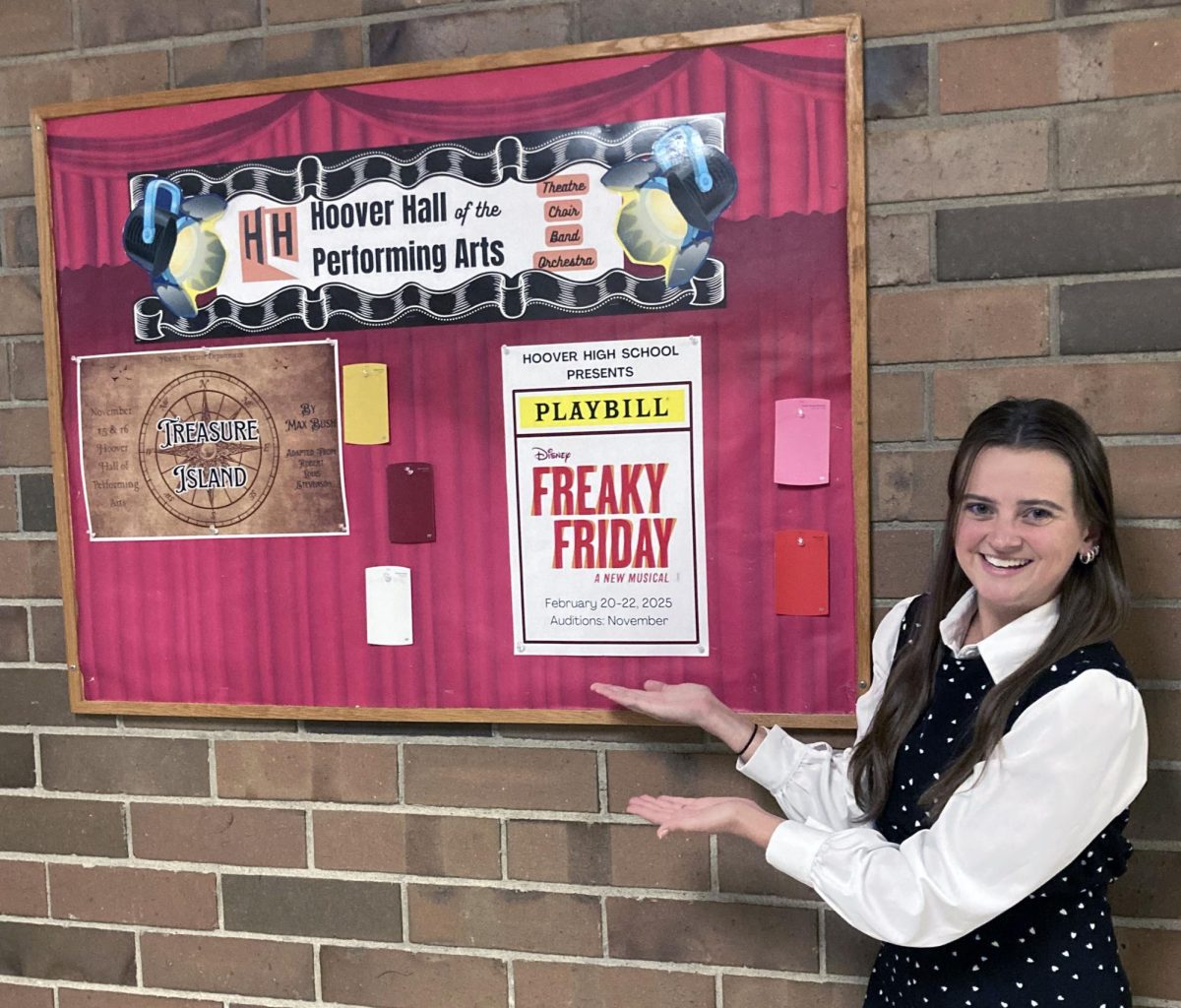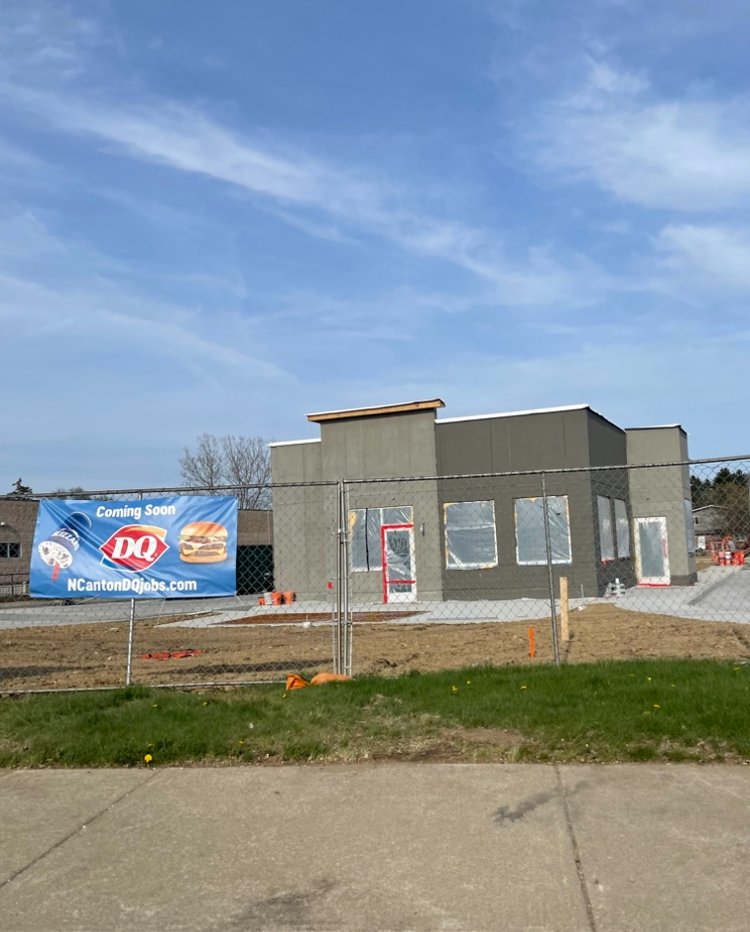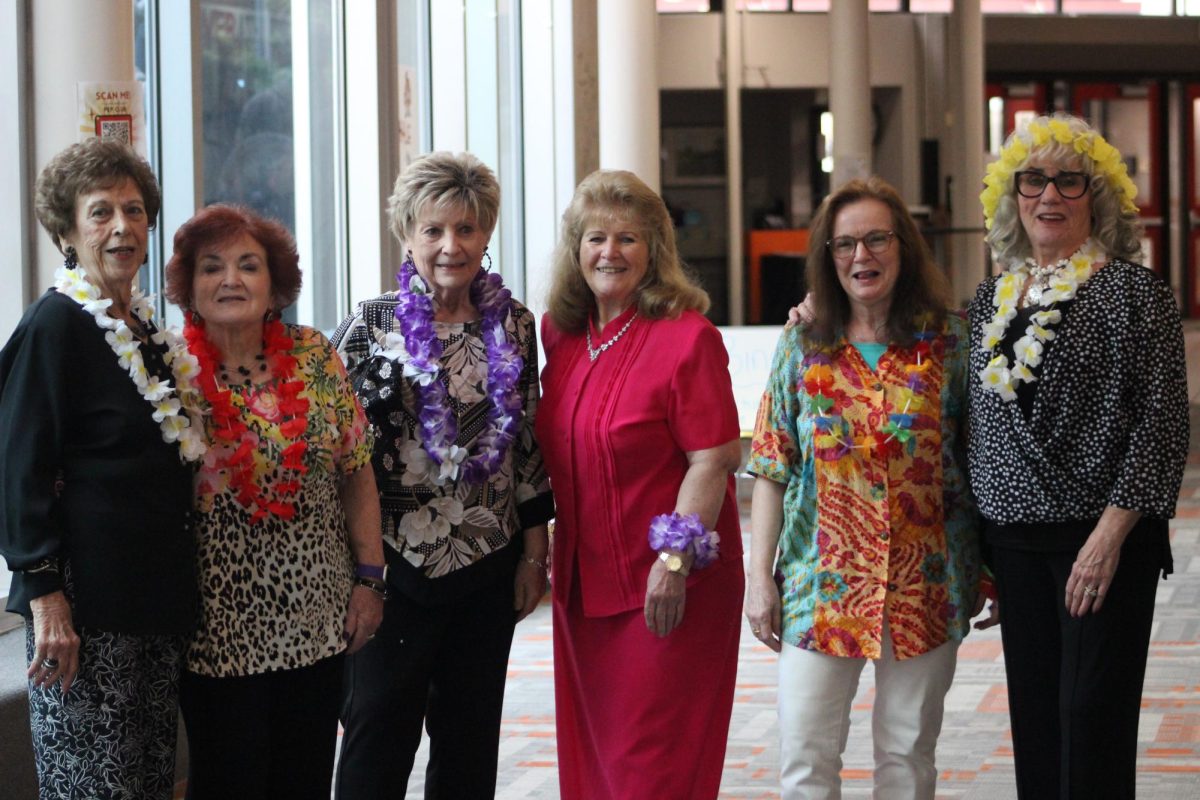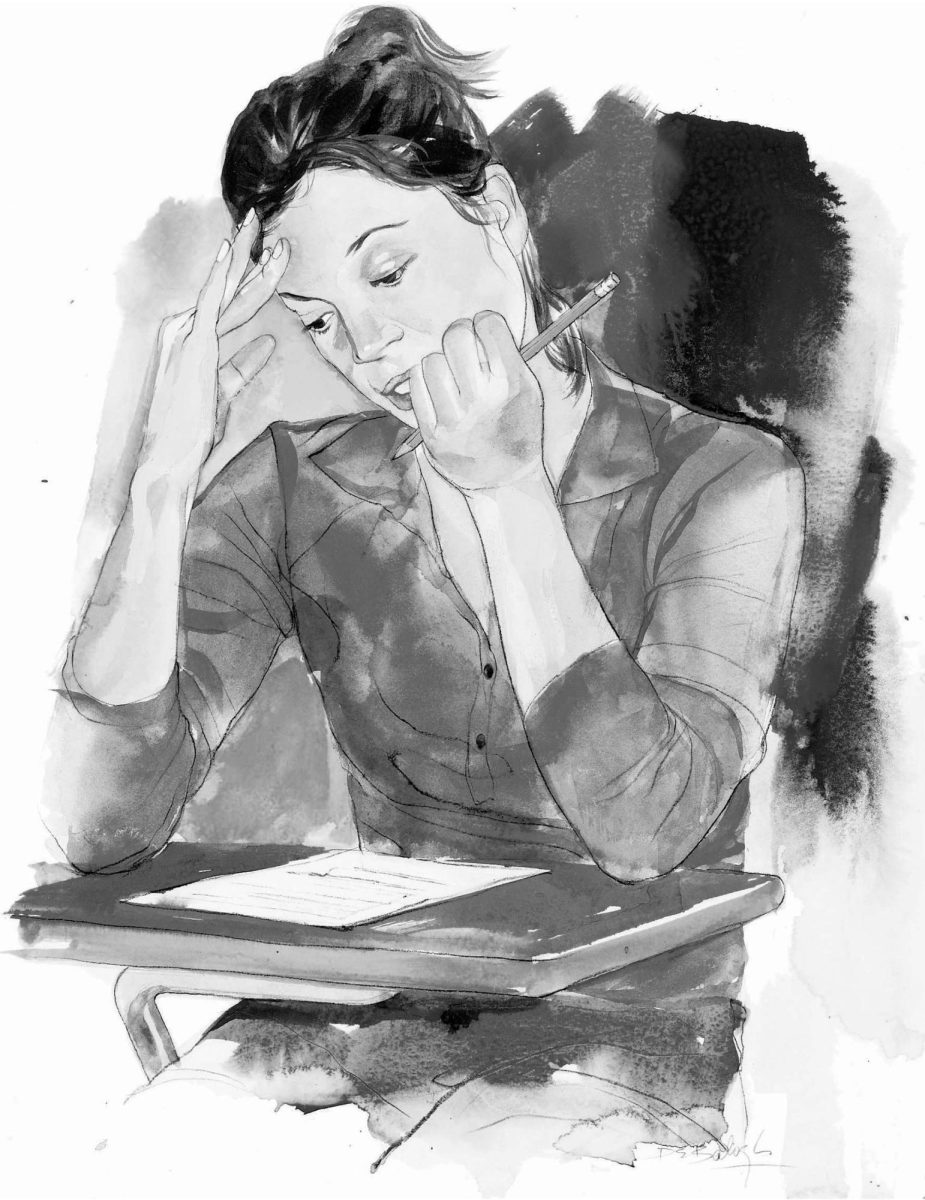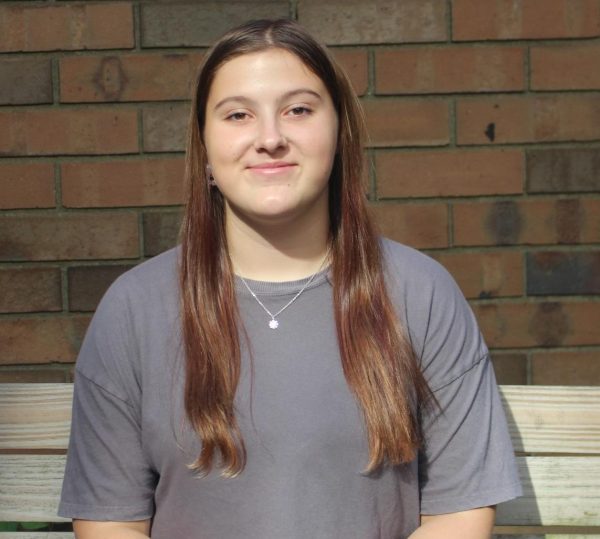Q: Can you walk us through the process of selecting this year’s musical? What factors were considered, and how did the final decision come about?
A: “When choosing a musical, I consider two things, and the first is the group of students I have that year. The other thing I consider is the actual genre of the show. I don’t want to have four Disney musicals in a row, so we sort of beep-bop around different genres. We’ll do like a historical show one year, and then maybe like a classic show, or more modern show the next year. This year is more modern and we have a really good group of guys and girls so there are great futures for everybody in it.”
Q: How do you determine which musical will best fit the talents and interests of the students, as well as the resources available at the school?
A: “The first part of that just agrees with my last answer, that you have to sort of see what your student population would be interested in. I think that students get really excited by again switching up genres, being able to fl ex their theatrical muscles in different ways and do something that might be really stylistic one year and then something that’s super modern the next year. With resources that we have, we’re really lucky here at Hoover and we have a lot of support from the community and administration, so when it comes to providing musicals for the show and the community, we’ve been very supportive in what we do. We have all of the resources that we need, we have a great space, we have an awesome group of tech students, and we can really choose whatever we want. It’s a good place to be.”
Q: What are some key elements or themes of this year’s musical that you believe will resonate with the audience and the cast?
A: “I think one of the main themes of this year’s show is kindness. There are some characters that go through some very significant changes in this show and the people around them are affected by it. And so everyone has to sort of understand that; everybody goes through things. And the best way to go through life is to lead with kindness and give everybody respect and, I mean that’s not only the theme for the show, but a theme for school and life in general. So it really is a feel-good musical and it just shows the good in humanity.”
Q: Can you share any insights into the challenges or unique aspects of staging this particular musical? How do you plan to address them?
A: “There are so many diff erent places that we have to snap to and do it really quickly. The semantic changes are going to be a challenge but the way that we’re dividing the set is a way that has been used for years and years. It goes all the way back to Greek theatre. It is something called a periaktoi and it’s this triangular piece of scenery that moves, and it changes the background really quickly and it still looks impressive on stage.”
Q: What does the timeline look like from the initial announcement of the musical to the fi nal performance? How do you and your team plan to prepare for each stage of production?
A: “The planning starts in the summer. I like to sit down and come up with a master schedule for myself and for the whole production. It just makes it a lot easier because once school starts, as everybody knows, everything gets really crazy and chaotic, and I just like to be prepared beforehand. Auditions will be mid-November, rehearsal starts in December, and then\ the show is at the end of February. It’s stretched out pretty long but it feels like it goes really fast.”
Q: How do you collaborate with other departments (such as set design, costumes, and lighting) to bring the musical to life? Can you describe any specific plans or innovations for this year’s production?
A: “In our theatre department, there are two different avenues a student can take, whether that be acting or working behind the scenes. [Tech I-Tech III] are going to build the sets in class. We also occasionally work with the art departments in developing some art pieces for not only our set but for our lobby. We have a couple AP art students who help with our scenic painting to do some really cool looks there. And of course, we [work with] the instrumental music department, with Mr. Varn and his students who are typically involved in the orchestration of the shows.”
Q: What are your expectations for the cast and crew in terms of their roles and contributions to the production? How do you plan to support and motivate them throughout the process?
A: “My biggest request of anybody who’s involved in the show is to try your best. A show is only as good as you want it to be, so if you want to put in the time, you want to put in the effort, if you want to try hard, then the show will be really great.”
Q: How does this musical fit into the overall vision or goals you have for the school’s theatre program? Are there any long-term objectives you hope to achieve with this production?
A: “I’m always looking at growth in the department, so any show that again has a high tech requirement or it has the ability to have a ton of people like actors in it is a good show for me. I wouldn’t tend to choose a show that has a really small cast or that is super simple. We want to do things that are bigger because they attract more people, not only from the community but the students as well. To have more students involved means it gives more kids the opportunity to learn and to grow love for theatre. So in terms of the future state, just trying to ignite a love for theatre and the performing arts for people and trying to grow the program with a show that is attractive and fun and colorful.”
Q: Can you discuss how you balance creative vision with practical considerations, such as budget and time constraints, to ensure a successful and memorable performance?
A: “I think the most important part of making sure everything that you want to have happened, happens, is again that management of time and its sort of a never-finished job. I’ve never been part of a show where absolutely everything that you want to have happen gets done, but you just have to compromise with the time that you have, the people that you have, and prioritize creatively what’s most important to you and start there. If at the end of the process you have a couple minutes to add something else you think is cool, then that’s awesome, but as long as you pick out your top priorities in terms of creative outputs and focus on them, then the show can be a success.”

